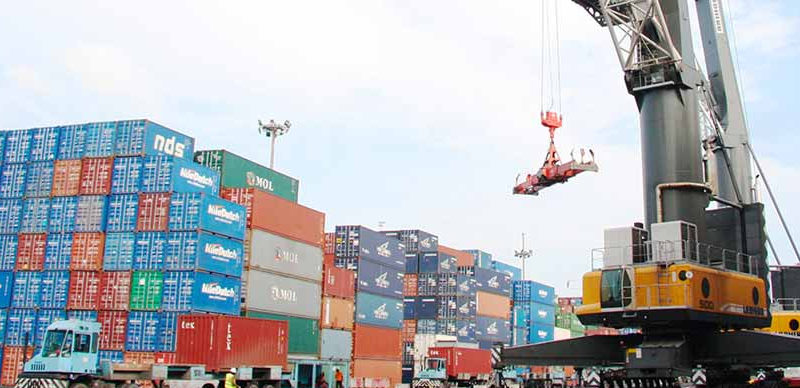The implementation of new tariff regulations by the former US President, Donald Trump, has triggered significant disruption in the Nigerian export sector, causing widespread uncertainty and financial losses. Ini Daniel, the Chief Commercial Officer of AAJ Express Logistics Limited, highlighted the severity of the situation, stating that over 70% of Nigerian air shipments to the US have been either blocked or indefinitely delayed since the new rules took effect on April 2, 2025. This abrupt enforcement has caught many businesses off guard, creating a ripple effect across export-dependent industries in Nigeria. Cargo and courier companies, particularly those based in Lagos, are facing significant challenges in obtaining clearance for goods into the US, with minimal information provided regarding the reasons for delays or rejections. This lack of transparency has exacerbated the crisis, leaving Nigerian exporters in a precarious position.
The lack of clear communication from US authorities has left Nigerian exporters operating in a state of uncertainty, with shipments being held or refused without proper justification. This lack of transparency has compounded the challenges faced by businesses, making it difficult to adapt or plan for the future. Exporters have invested heavily in goods that are now stranded, incurring substantial storage fees and threatening their very survival. The situation has also thrown the airline industry, a crucial component of Nigeria’s time-sensitive export operations, into disarray. Airlines are resorting to steep discounts and even free return flights for uncleared goods, incurring substantial losses in the process.
The impact of these new regulations extends beyond Nigeria, affecting exporters from Europe, Asia, and other parts of Africa. However, the lack of communication is particularly damaging to Nigerian exporters who heavily rely on US demand. The continued uncertainty poses a significant threat to the survival of certain export sectors in Nigeria, potentially leading to their collapse. Trade experts are advising Nigerian exporters to suspend US-bound shipments until the US Customs and Border Protection releases detailed guidance. This precautionary measure aims to minimize potential losses while awaiting clarity on the new regulations.
The Nigerian government is facing increasing pressure to intervene and initiate dialogue with US trade authorities to mitigate the negative consequences of these new regulations. The mounting backlog of goods and escalating losses underscore the urgent need for a resolution. Exporters are emphasizing the time-sensitive nature of the situation, demanding immediate answers and action to address the growing crisis. The Nigerian economy, heavily reliant on export markets, cannot sustain prolonged uncertainty in its trade relationship with the US, one of its most critical export destinations. The continued disruption poses a serious threat to economic stability and growth.
The sudden implementation of these new tariff regulations without prior warning or clear guidelines has created a chaotic situation for Nigerian exporters. The lack of communication from US authorities has amplified the challenges, leaving businesses struggling to navigate the new landscape. The resulting delays, rejections, and mounting costs threaten the viability of many export-oriented businesses. The urgent need for dialogue and clarification between the Nigerian and US governments is paramount to resolving this crisis and preventing further economic damage.
The long-term consequences of this trade disruption could be devastating for the Nigerian economy. The potential collapse of export sectors could lead to job losses and a decline in economic activity. The uncertainty surrounding the new regulations also discourages future investment and hinders the growth of the export sector. A swift resolution is crucial to restoring confidence and ensuring the continued viability of Nigerian businesses that rely on trade with the US. The situation calls for immediate and decisive action from both governments to prevent further economic hardship and preserve the vital trade relationship between the two countries.


